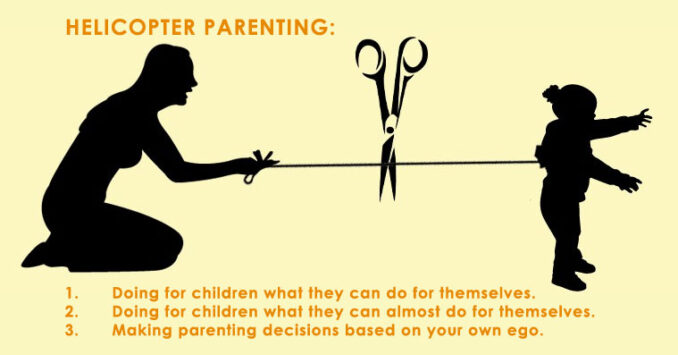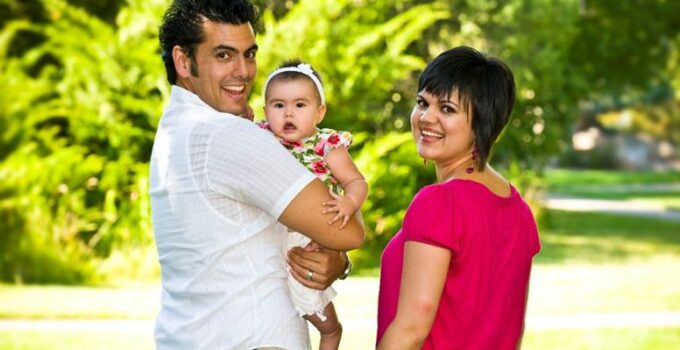The concept of ‘parenting styles’ began in the 1960s with the developmental psychologist Diana Baumrind, who defined Permissive, Authoritarian, and Authoritative parenting styles.
Over time, these have expanded into five main parenting styles, which vary in their communication, discipline style, expectations, and nurturance.
But which style are you? And is one parenting style better than the rest? These parenting styles can come from your family of origin or your experiences growing up. For example, if your parents had one parenting style, you may do the opposite because of the feelings you have about how you were raised.
Read on to find out more!
1. Attachment Parenting

Source:greatergood.berkeley.edu
In attachment parenting, the focus is on nurturing a close connection between the parent and child. This connection will strive to continue the level of closeness exhibited between a parent and newborn beyond the first few years of life.
This shows an extended breastfeeding period, bed-sharing, and wearing the baby close to the body throughout the day.
- In attachment parenting, the parent’s primary objective is to remain emotionally and physically close to their child while protecting their emotional and developmental wellness.
If your child wakes up in the night, do you put them back in their bed or happily have them sleep in yours, even if this happens every night? Then, you are likely exhibiting an attachment parenting style. This style of parenting can often come lead to very emotionally in-tune children, or it can lead to an over-sensitivity. It really depends on how the child responds. In every parenting style, children will react differently and respond based on their needs.
2. Permissive Parenting

Source:goodto.com
Permissive parenting styles are governed by a lack of structure in the parent-child dynamic. As a result, permissive parenting is sometimes described as ‘uninvolved parenting,’ which can have negative connotations.
- Rather than being distant or aloof around the child, a permissive parent is instead one who allows their child to establish their own rules and pace of life. In addition, these parents tend to be warm and nurturing and aspire for their children to see them more as friends than authority figures.
How do you know if you are a permissive parent? Imagine the same scenario described before, where your child wakes up at night. Do you put them back to bed? Or do you encourage your child to make their own decisions, whether going back to bed, sleeping in your bed, or maybe not going back to bed at all?
Permissive parenting styles revolve around the belief that a child knows what’s best for them and can learn to manage themselves at their own pace.
3. Authoritative Parenting

Source:joonapp.io
Authoritative parenting styles are centered around firm boundaries (think: ‘grown-ups time’ where the kids aren’t allowed) and discipline. This style prioritizes nurturing of the child in the framework of an established set of rules.
- Parents who fall into this category will allow their children to challenge rules and boundaries but maintain a clear sense of ‘parent’ and ‘child’ by following up on any misbehavior with appropriate discipline.
For example, if your child has a habit of drawing on walls or furniture, do you encourage them to draw on paper instead, or set out a clear consequence for this bad behavior? If you are a parent who uses time-out as a discipline tool, you are likely an authoritative parent.
4. Helicopter Parenting

Source:bonnieharris.com
The term ‘helicopter’ comes from these parent types having a near-constant hovering presence in their child’s life. A “helicopter parent,” on the other hand, isn’t as close to their child as attachment parents are.
They control almost every aspect of their child’s life with rigid rules and discipline.
Do you pick out the extracurricular activities your child will sign up to do? Or maybe you set out the weekly dinners with little room for flexibility? Then you may well be a helicopter parent.
- Children of this parenting style are more likely to do well in school, but they may have a hard time with other parts of their lives, like socializing and managing money — click here for more information.
Joanna Bel has more great information on parenting styles on her blog.
5. Instinctive Parenting

Source:familyeducation.com
A lack of a clear parenting philosophy defines instinctive parenting styles. These parents raise their children based on their instincts, which are often influenced by how their parents raised them.
Are you an instinctive parent? For example, will you always use time-out to discipline your child if they draw on the wall? Or are you more inclined to respond differently depending on the cues you pick up from your child?
- If your approach to parenting fluctuates according to your child’s behavior, you are ticking the boxes for an instinctive parenting style.
Conclusion
Keep in mind, that no parent consistently practices a single parenting style. Parents instead show a constant shift between different styles, which may change as they get older or have more experience or live in a different place. In addition, parents can change styles even depending on the sibling. One child may need more authoritative parenting, while the other child does not need to be watched over the same way and a more permissive style can rule the day.
Parenting is not a one size fits all process. It is messy and can often be trial-and-error, even if you have a more comfortable parenting style based on your personality, children have a way of making you evolve and change!
If you are looking to be a better parent, pay attention to your parenting style but also venture out and try new techniques to maybe improve the upbring and relationship with your child. As stated above, trial-and-error is important in parenting and can lead to a happier child and household.
Finding your parenting style is certainly not a requirement for good parenting, but it can make you more conscious of your behavior, your child’s behavior, and how your relationship is growing. So, for those reasons, we recommend taking some time and observing yourself and maybe thinking about the pros and cons of your parenting style.





